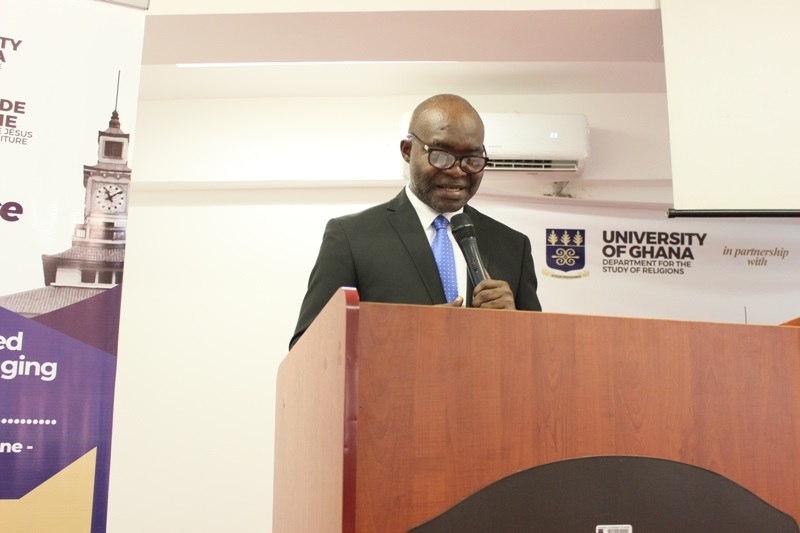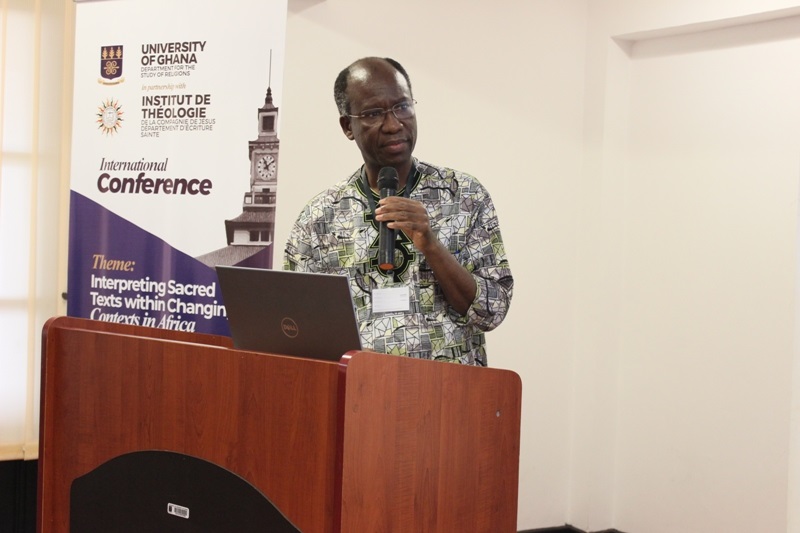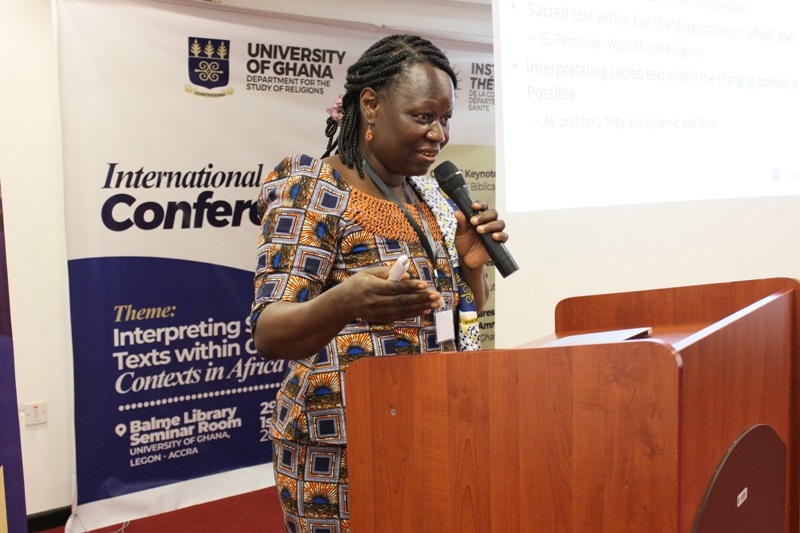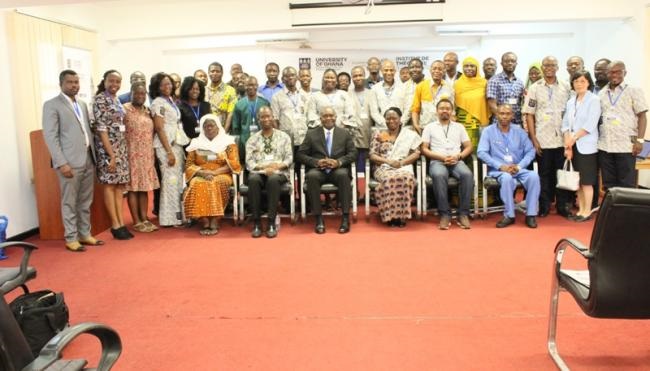The Department for the Study of Religions at the School of Arts, UG, in conjunction with the Départément d’Ecriture Sainte, Institut de Théologie de la Compagnie de Jésus, Abidjan, Cote d’Ivoire, has hosted an international conference on the theme, “Interpreting Sacred Texts within Changing Contexts in Africa,” with sponsorship from the Institute of Missiology of Missions e.V., (MVI) Aachen, Germany. This conference, held at the Seminar Room of the Balme Library, University of Ghana, welcomed fifty-one (51) scholars from Nigeria, Burkina Faso, La Cote d’Ivoire, South Africa, Kenya, Rwanda, Taiwan, Italy and Ghana, representing over twenty Universities, Institutes, Seminaries, and Ecclesiastical faculties.
Opening the Conference, the Provost of the College of Humanities, Prof. Daniel Frimpong Ofori noted that the timing of the conference was most opportune, falling within the same month during which the College of Humanities was celebrating the Day of Scientific Renaissance of Africa. The Provost observed that Sacred texts, whether those of the Christian, the Islamic or the African Indigenous religious tradition, are witnesses to the religious experiences of persons, societies and cultures, which have been transmitted through believing communities over the course of several centuries. Prof. Ofori congratulated the Local Organising Committee for the initiative and urged its members to continue to be innovative. He also pledged his tremendous support for any future endeavours.

The Provost, Prof. Daniel Frimpong Ofori
The general keynote speaker, Rev. Prof. Paul Béré, SJ, Professor of Old Testament Exegesis at the Pontifical Biblical Institute, Rome, made a presentation on Aurality and Exegetical Techniques: Have We Forgotten the Aural Audience of the Bible? Defining aurality as the “shared hearing of written texts”, he observed that aurality was an important but often neglected aspect of the original context of Sacred Texts, particularly biblical texts. This aural context he argued, is further threatened by changing socio-cultural conditions in Africa leading to a depletion of our capacity to tap into our oral resources. Prof. Béré pointed out that the main postures driving the interpretation of biblical texts have been the interest in the scribe (diachronic studies) and the interest in the reader (literary studies). This has left a gap in the interest in the hearer for which a new approach becomes more important. The recovery of this approach is particularly important for Africa since it would rescue the Bible from being looked upon as an artefact rather than being engaged as a living reality, leading to the building up of listening communities on the continent.

Rev. Prof. Paul Béré, SJ
Prof. Rose Mary Amenga-Etego, Head, Department for the Study of Religions, in her keynote address spoke on the topic: Unpacking Toolluum as A Sacred Text: Understanding A Religio-Cultural Concept of Preparedness, demonstrated that beyond the association of Sacred Texts with Christianity, texts in Nankani culture find expression in a variety of things, ranging from issues/problems, speech or books. An example of such texts is the gendered concept of Toolluum, which encompasses several culturally identifiable essentials for different occasions – activities, rites, objects or even persons, ultimately used to prepare for the inevitable, and which play a significant role in funerary rites. She stressed the need to preserve elements of traditional knowledge systems emphasising the role they could play for tourism and food security in contemporary society.

Head, Department for the Study of Religions; Prof. Rose Mary Amenga-Etego
Prof. Hulisani Ramantswana, Professor of Old Testament Studies at the University of South Africa, Pretoria, addressed the topic: Sacred Texts Produced under the Shadows of Empires: Decolonial Options in Reading the Hebrew Bible. Prof Ramantswana observed that the Hebrew Bible is in one breath the product of an anti-imperial, yet colonized community and an imperial sponsored text, in another. This presents the African reader with different possibilities of approaching the biblical text.
Dr. Rabiatu Ammah of the Department for the Study of Religions, spoke on Islamic Sacred Texts in Changing Interpretative Contexts. Dr. Ammah identified extremism as the bane of contemporary interpretation of Islamic texts, noting that these views had silenced the voices of the majority of Muslims. She pointed out that religious doctrines, laws and practices do not come merely from clear prescriptions of sacred texts but also from fallible limited interpreters whose conclusions reflect their intelligence, political and social situations and customs and the influences of power and privilege. Dr. Ammah, thus, had two recommendations namely, the application of the concept of Wasatiyya (moderation), which is the golden mean, as well as the interpretation of principles to help with transformation without necessarily going against any express fundamental or essential teaching of Islam.
